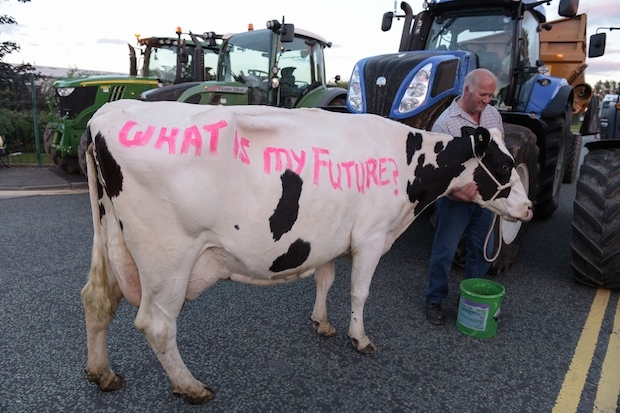So Morrisons have announced that – after long discussions with farmers’ unions over the price of milk – they will launch a new brand of milk, which will be 10p per litre more expensive than their usual milk. The brand – named ‘Milk for Farmers’, will go on sale in the autumn, and the extra cost will all go directly back to dairy farmers.
The NFU – one of the groups that has been leading the discussions – has welcomed the plan, while cautioning that simply launching one product isn’t a fix-all solution:
‘It must also be displayed prominently in-store. We have also had discussions with Morrisons about how it can introduce further initiatives to support dairy, including cheese, butter and yoghurt. We will continue to urge Morrisons and all retailers to ensure that farmers from all sectors who supply their food get a fair price.’
It does seem to be a bit of good PR for Morrisons, but if the extra money makes its way back to the farmers, then ‘Milk for Farmers’ will certainly help to prop up the industry. But of course Morrisons aren’t the only supermarket that have been paying an ‘unfair’ price for milk. According to the NFU, Asda, Lidl and Aldi pay farmers less than the cost of production for their milk. So what is the real solution to the problem? Some argue that farmers shouldn’t expect to simply be ‘given’ money in order to cover the cost of production – if the demand isn’t there to cover the cost (or, indeed, if supply outweighs demand), they should just ‘give up making milk’. That was the view of the NFU’s former chief economist Sean Rickard on this morning’s Farming Today who – somewhat unsurprisingly – received a rather short shrift from farmers for his comments.
It remains to be seen whether people will choose to pay the extra money for their milk – and either way, it will be a very interesting experiment. But relying on the goodwill of the public surely can’t be the best way of fixing the current problems in Britain’s dairy industry. Perhaps the simplest answer – for now – is that we must vote with our wallets. If we don’t, then we may well lose our milk industry. But then again, can you mourn it if you didn’t care enough to support it?







Comments